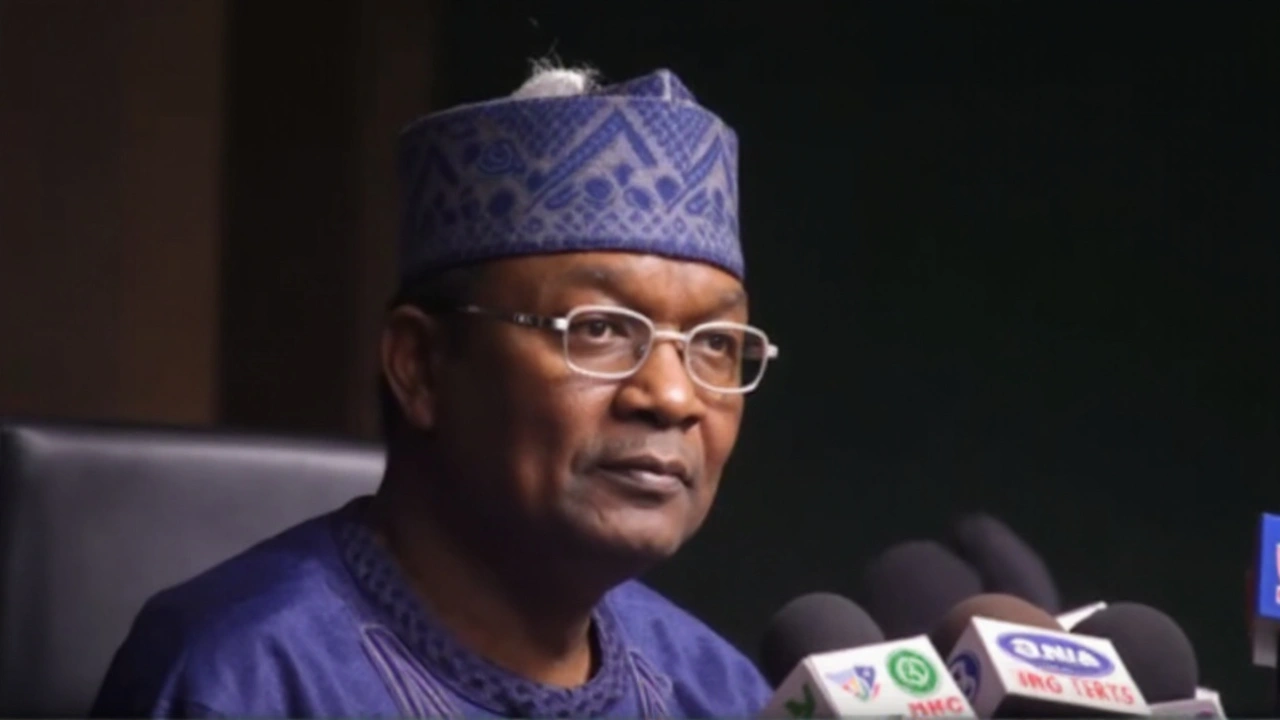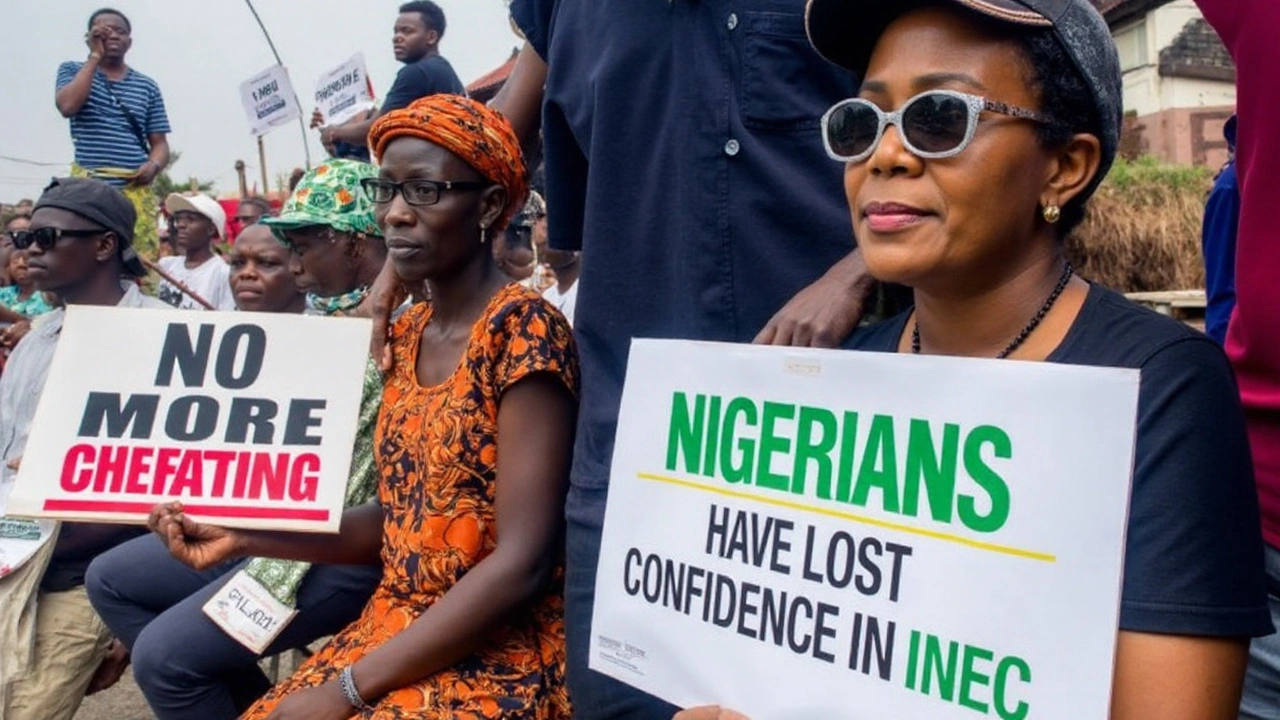Why Early Action Matters
When just under 30% of eligible Nigerians showed up at the polls in 2023, it sent a loud signal: people don’t think their vote counts. The European Union’s election observers didn’t mince words – the whole process "eroded voters' trust." One of the biggest flashpoints was the promised Internet Results Viewing (IReV) portal that never went live on election day. Voters were told they would be able to watch results roll in online, but the screen stayed black. That broken promise feels like a slap in the face for anyone hoping for a cleaner, more open system.
Trust isn’t just a nice‑to‑have in politics; it’s the glue that holds democratic institutions together. When citizens believe the system is rigged or opaque, they stay home, and low turnout feeds a cycle of delegitimisation. The 2023 figure – 25,286,616 voters – wasn’t just a number, it was a warning sign that the electoral contract between the state and its people is fraying.
Adding fuel to the fire, the Nigeria Bureau of Statistics released data showing a jump in reported judicial bribes in 2023. If the courts, traditionally seen as the “last hope of the common man,” are compromised, confidence in the entire electoral ecosystem takes a nosedive. The result? A growing chorus of Nigerians saying they’ll skip the next vote not because they dislike any candidate, but because they simply don’t trust the machinery that counts the votes.
All eyes are now on the 2027 general election. It’s the first real chance for the country to hit the reset button. But the clock is ticking, and the longer INEC drags its feet, the deeper the trust deficit becomes.

What Needs to Change
Rebuilding faith isn’t a one‑off project; it’s a series of concrete steps that need to be announced, implemented, and monitored. Below are the key areas experts say must be tackled before the next ballot.
- Deliver on Technology Promises: The IReV portal must be built, tested, and rolled out well before election day. Piloting the system in a few states during by‑elections can iron out glitches and show voters that the promise is real.
- Transparent Result Transmission: Every polling unit should have a real‑time, publicly accessible tracking number. Independent observers and civil society groups need live feeds, not after‑the‑fact spreadsheets.
- Clear Communication Strategy: INEC should launch a year‑long outreach campaign using radio, social media, and community town‑halls. Simple messages about what’s changing, why it matters, and how citizens can verify results will go a long way.
- Strengthen Oversight: An independent audit body, perhaps with regional representation, must be empowered to review INEC’s finances and procurement. Transparency in how funds are spent on technology will curb suspicion of waste or corruption.
- Address Judicial Corruption: While not directly under INEC’s remit, coordinating with anti‑corruption agencies to secure the judiciary’s role in election disputes is vital. Faster, impartial rulings will stop rumours that courts are buying votes.
- Engage Youth and First‑time Voters: With over half the electorate under 30, digital literacy drives, school programs, and youth ambassador networks can turn apathy into participation.
- Feedback Loops: After each election cycle, INEC should publish a public report summarising what worked, what didn’t, and how complaints were handled. This creates a habit of accountability.
These reforms aren’t just bureaucratic check‑boxes; they’re confidence‑building gestures that speak directly to citizens’ frustrations. When people see the commission actually following through – not just saying it will – the narrative shifts from “they promised and failed” to “they delivered.”
Moreover, the timing matters. Starting these initiatives now, rather than waiting for 2027, sends a signal that the commission is serious about fixing the system. Early pilots, transparent procurement of tech tools, and visible community engagement can turn the tide before the next election fever hits.
In short, rebuilding trust is a marathon, not a sprint. It demands consistent effort, honest communication, and a willingness to be held accountable at every step. If INEC can pull these threads together, the 2027 election could become the moment Nigerian democracy turns a corner, proving that votes do count and that the nation’s institutions can earn back the public’s faith.

Pinki Bhatia
September 26, 2025 AT 00:32It's heartbreaking to see so many Nigerians lose faith in the process.
NARESH KUMAR
September 28, 2025 AT 08:06We need to remember that rebuilding trust isn’t a one‑off sprint; it’s a marathon that requires every stakeholder to show up. The IReV portal, if rolled out properly, could be the start of a new era of transparency 😊. At the same time, community outreach can demystify the process for first‑time voters. Let’s keep the conversation alive and hold INEC accountable.
Purna Chandra
September 30, 2025 AT 15:39The erosion of electoral confidence in Nigeria is not merely a statistical footnote but a symptom of a deeper systemic malaise.
The moment the promised Internet Results Viewing portal flickered black on election night, it signaled to citizens that the guardians of democracy were either incompetent or complicit.
Such a glaring failure fuels the inevitable speculation that shadowy cabals manipulate the levers of power behind the curtains of official rhetoric.
One cannot overlook the simultaneous surge in reported judicial bribes, which casts a pall over any hope that legal recourse will be impartial.
The confluence of faulty technology and corrupt courts creates a perfect storm for disenfranchised voters to retreat into political apathy.
Yet, history shows that even the most entrenched oligarchies can be destabilized by sustained pressure from an informed populace.
To that end, a transparent, publicly audited IReV system could serve as a beacon of accountability, provided it is subject to rigorous third‑party testing.
Piloting the system in select states would not only iron out technical glitches but also demonstrate a genuine commitment to reform.
Moreover, real‑time tracking numbers at each polling unit would empower civil society observers to verify results independently.
The media, both traditional and digital, must amplify these verification mechanisms to restore a sense of agency among the electorate.
Youth engagement, especially through digital literacy campaigns, can transform the narrative from “our votes don’t matter” to “we are the change agents.”
Anti‑corruption agencies should synchronize their efforts with INEC to ensure that courtroom verdicts on electoral disputes are swift and unbiased.
A regular feedback loop, wherein INEC publishes post‑election performance reports, would institutionalize accountability.
In sum, the road to the 2027 election demands a holistic overhaul that intertwines technology, oversight, and civic education.
Only by stitching these threads together can Nigeria hope to resurrect the waning trust of its citizens and safeguard its democratic future.
Mohamed Rafi Mohamed Ansari
October 2, 2025 AT 23:12The proposed measures, while ambitious, require meticulous planning and budgetary oversight to avoid further public disillusionment.
अभिषेख भदौरिया
October 5, 2025 AT 06:46It is heartening to see concrete proposals that address both technological and judicial shortcomings. By fostering transparent communication and empowering the youth, we can gradually rebuild the social contract between the state and its people. Consistency and sincerity will be the twin pillars of lasting reform.
Nathan Ryu
October 7, 2025 AT 14:19We must demand that INEC not only promises but also delivers tangible improvements. The IReV portal cannot remain a phantom project forever; its rollout should be demonstrable before the next election cycle. Transparency in procurement will curb the perception of hidden agendas. Community outreach programs should be multilingual to reach rural voters. A robust audit mechanism will provide the necessary checks and balances. Ultimately, the electorate deserves a system that respects their ballot.
Atul Zalavadiya
October 8, 2025 AT 18:06While your enthusiasm is noted, the reality on the ground is fraught with logistical challenges that often go unreported. For instance, inconsistent electricity supply in many regions can cripple any digital reporting system. Moreover, the procurement process for such technology has historically been opaque, leading to cost overruns and subpar equipment. Without addressing these infrastructural bottlenecks, any portal risk becoming another hollow promise.
Amol Rane
October 11, 2025 AT 01:39The current discourse feels like a rehash of old grievances without actionable steps.
Venkatesh nayak
October 12, 2025 AT 05:26Even if the ideas sound fresh 😐, they need concrete timelines and budget allocations; otherwise they remain mere rhetoric.
rao saddam
October 14, 2025 AT 12:59Enough talk!!! It's time for INEC to put its money where its mouth is!!! Citizens are tired of excuses!!!
Prince Fajardo
October 15, 2025 AT 16:46Oh, absolutely, because a few emojis and angry caps will magically fix a decades‑old system, right?
Subhashree Das
October 18, 2025 AT 00:19The whole thing is a staged performance to distract from deeper corruption.
jitendra vishwakarma
October 20, 2025 AT 07:52yeah i guess we just wait and see what they actually do.
Ira Indeikina
October 21, 2025 AT 11:39While skepticism is healthy, dismissing every reform as a sham only deepens the divide. Constructive critique paired with actionable suggestions can steer the process toward real improvement.
Shashikiran R
October 23, 2025 AT 19:12We have a civic duty to hold our electoral bodies accountable, lest we betray the very principles of democracy we claim to cherish.
SURAJ ASHISH
October 26, 2025 AT 02:46All these plans sound nice but lack detail.
PARVINDER DHILLON
October 27, 2025 AT 05:32Let's keep the dialogue respectful and focus on what can be realistically achieved 🤝.
Nilanjan Banerjee
October 29, 2025 AT 13:06The specter of a broken electoral system haunts our nation, and only a concerted effort can exorcise it. By embracing technology, transparency, and youth empowerment, we may yet rewrite the narrative of disenfranchisement. Failure to act now will cement a legacy of cynicism that future generations will inherit.
sri surahno
October 30, 2025 AT 16:52What if the very push for an IReV portal is a smokescreen orchestrated by hidden elites to control the flow of information while pretending to modernize?
Varun Kumar
November 2, 2025 AT 00:26Our sovereignty depends on securing elections from foreign meddling and internal fraud.